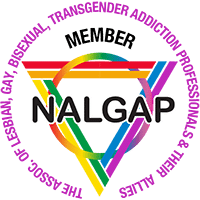Marijuana Addiction Treatment Denver
Break free from marijuana dependency at Mile High Recovery in Denver, where holistic care and human connection guide every step of your recovery journey.
Marijuana Rehab Center in Denver, CO
Marijuana use is often overlooked as harmful, but for many, it can become a serious barrier to living a balanced and fulfilling life. At Mile High Recovery Center in Denver, we provide compassionate, personalized care for individuals seeking freedom from cannabis dependency.
We offer a comprehensive approach that includes both evidence-based therapy and holistic practices. Clients work with experienced professionals to uncover the roots of their addiction and build a personalized recovery plan.
With structure, support, and a strong sense of community, we help individuals move toward a life free from marijuana dependency – one grounded in purpose and personal growth.

Understanding Marijuana Addiction
What starts as occasional marijuana use can quietly become an everyday habit – one that impacts your mental clarity, emotional stability, and ability to stay engaged in life. Many people find themselves relying on cannabis to manage stress, sleep, or boredom without realizing how it’s interfering with their goals and relationships.
Social acceptance of marijuana often makes it harder to recognize the problem. Many people continue functioning in daily life while feeling increasingly disconnected or unfulfilled inside. This disconnect can make it even more difficult to ask for help.
With the right treatment and support, recovery from addiction is entirely possible. At Mile High Recovery Center, our marijuana treatment center helps individuals uncover the root causes of their dependency and create a personalized path toward healing, clarity, and purpose.
Benefits of Cannabis Addiction Treatment
Treating marijuana addiction goes beyond simply stopping use – it’s about creating a healthier, more balanced life. Many people underestimate the impact of chronic marijuana use until it begins to affect their focus, relationships, or emotional well-being. Professional treatment provides a structured path to lasting change.
Key benefits of cannabis addiction treatment:
- Greater control over thought patterns and behaviors
- Decreased reliance on substances for emotional relief
- Enhanced self-awareness and decision-making skills
- Repaired trust and improved social interactions
- Tools to navigate high-risk situations without using
- Greater ability to manage cravings and withdrawal
- Reinforcement of positive lifestyle changes
- A strong foundation for long-term recovery
The decision to seek help is often the first step toward rediscovering who you are without marijuana. Recovery isn’t about perfection – it’s about progress, clarity, and reconnecting with life on your own terms.
Need residential treatment for addiction?
Take the first step towards recovery today.
Our team is ready to help you reclaim your life. Call now!

Why Choose Mile High Recovery Center For Rehab For Cannabis Addiction in Denver
Recovery is more than just stopping cannabis use – it’s about regaining direction, motivation, and a sense of self. At Mile High Recovery Center, our weed addiction rehab has helped countless individuals break free from dependency through compassionate, customized care.
Here’s what sets our approach apart:
- Personalized Care Plans: No two journeys are the same, and neither are our treatments.
- Advanced Therapies: CBT, EMDR, and other modalities proven to support long-term recovery.
- Supportive Staff: Our team includes recovery alumni who understand the challenges firsthand.
- Real Community: Building connections through group therapy, sober living events, and alumni support.
Located in Denver, our cannabis rehab centre environment is surrounded by the natural beauty of Colorado – an ideal backdrop for reflection and renewal. At Mile High, we don’t just treat symptoms – we help you build a foundation for a purpose-driven, cannabis-free life.
Our Rehab Programs
What We Treat
Colorado Rehab | Real Recovery Stories
Resources
- https://nida.nih.gov/research-topics/cannabis-marijuana
- https://www.cdc.gov/cannabis/about/index.html
- https://www.dea.gov/sites/default/files/2020-06/Marijuana-Cannabis-2020_0.pdf
- https://pmc.ncbi.nlm.nih.gov/articles/PMC6223748/
- https://www.cdc.gov/cannabis/health-effects/cannabis-use-disorder.html
- https://pmc.ncbi.nlm.nih.gov/articles/PMC4880536/
- https://apcz.umk.pl/JEHS/article/view/43607
- https://pmc.ncbi.nlm.nih.gov/articles/PMC6312155/


Reach Out Today to See How Mile High Recovery Center Can Help You Heal
If you or a loved one are ready to regain autonomy over your lives and well-being, recovery starts here. Let us guide you toward sustainable wellness and sobriety through our personalized treatment plans tailored to your unique needs and experiences. We look forward to hearing from you!


